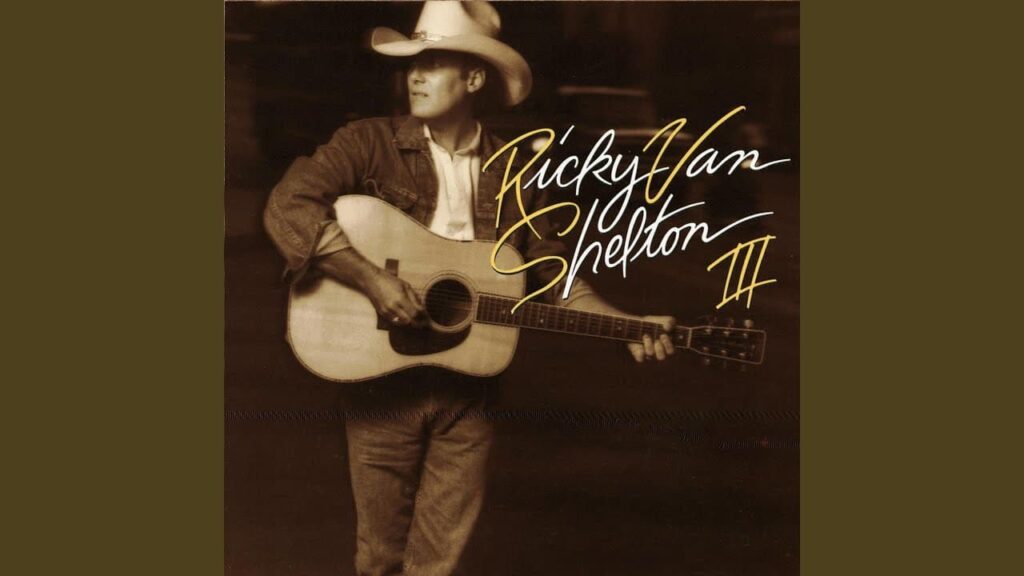
A Declaration of Emotional Freedom: When a Heart Mends and Moves On
There’s a particular kind of strength that blooms from the ashes of a broken heart, a defiant resilience that declares, “No more.” And that, my friends, is the profound, liberating essence of Ricky Van Shelton’s 1990 hit, “I’ve Cried My Last Tear For You.” This powerful anthem of self-reclamation resonated deeply with country music fans, soaring to the pinnacle of the charts. Released in February 1990 as the second single from his highly anticipated third album, RVS III, the song quickly became Ricky Van Shelton’s seventh number one single on the Billboard Hot Country Singles & Tracks chart, solidifying his place as a force in country music. Its success wasn’t just a testament to his undeniable talent, but to the universal yearning for release from emotional torment.
The early 90s were a vibrant time for country music, with a blend of traditional sounds and newer, more polished production. Ricky Van Shelton, with his classic country vocal style, felt like a comforting bridge between eras. “I’ve Cried My Last Tear For You” was penned by the accomplished songwriting duo Chris Waters and Tony King. While the specific personal narrative that inspired the songwriters isn’t widely publicized, the lyrics speak a truth that countless individuals have felt: the moment of reckoning when you decide you’ve given enough, hurt enough, and shed enough tears over a love that wasn’t meant to be. It’s a testament to the power of a well-crafted song that it can capture such a deeply personal, yet universally understood, emotional turning point.
At its heart, “I’ve Cried My Last Tear For You” is a declaration of emotional independence. It’s about drawing a line in the sand, saying goodbye not just to a person, but to the pain they inflicted. The song isn’t about bitterness or revenge; it’s about self-preservation and the courage to move forward. The narrator has endured heartache, shed tears, and perhaps clung to hope longer than they should have. But the song marks a pivotal shift, a decision to stop the cycle of suffering. The repeated line, “I’ve cried my last tear for you,” isn’t just a statement; it’s a defiant roar, a cathartic release of pent-up sorrow, signifying a journey from victim to victor in the landscape of love lost. It acknowledges the pain, but firmly shuts the door on its continued hold.
Ricky Van Shelton’s vocal performance on this track is nothing short of masterful. His rich baritone, imbued with just the right amount of melancholic weariness, perfectly conveys the journey from sorrow to resolve. You can hear the lingering echoes of past pain in his voice, but also the rising tide of newfound strength and determination. He doesn’t sugarcoat the hurt; instead, he acknowledges it with a quiet dignity, making the eventual triumph feel all the more genuine. The simple, direct melody and instrumentation serve to amplify the raw emotion of the lyrics, allowing Shelton’s voice to carry the full weight of the message. There are no elaborate flourishes, just honest, heartfelt country music that speaks directly to the soul.
For those of us who remember “I’ve Cried My Last Tear For You” from its heyday, it evokes a particular kind of nostalgia—the sound of 90s country, yes, but more importantly, the feeling of empowerment that comes from finding your own strength after a fall. It’s a reminder that even the deepest hurts can heal, and that there comes a time when you have the right to reclaim your heart and your happiness. Ricky Van Shelton delivered this message with such conviction that it became more than just a hit song; it became an anthem for anyone ready to wipe their eyes, stand tall, and bravely step into a future free from the shadow of past heartbreaks. It still carries that same resonating power today, a timeless testament to the human spirit’s capacity for recovery and renewal.